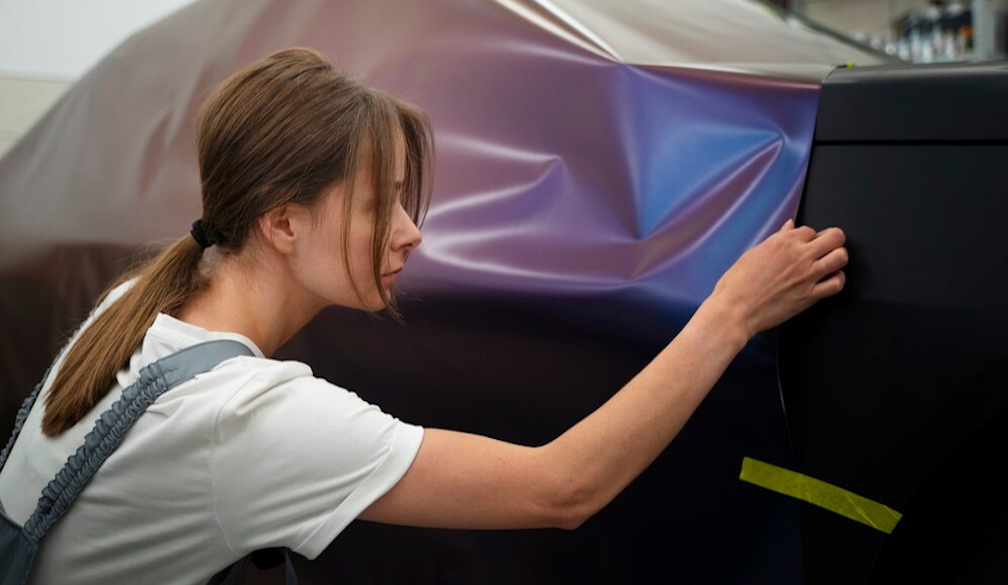Car Wrap in Sydney: A Powerful Tool for Business Branding and Car Signage
- Written by Viw Magazine

In today’s fast-paced, highly competitive world, businesses are always seeking innovative ways to stand out and gain attention. One of the most effective and dynamic methods for promoting your brand is through car wrap in Sydney. Especially in a vibrant city like Sydney, where hustle and bustle fill the streets, car wraps and signage can help businesses drive visibility, making their presence felt wherever they go.
If you're new to the concept of car wrap in Sydney or car signage, you're in the right place. In this blog, we'll explore the benefits, the process, and how this marketing tool can boost your business visibility in the bustling streets of Sydney.
What is Car Wrap?
A car wrap involves covering a vehicle with a vinyl film that features custom designs, logos, or advertisements. It’s a form of vehicle signage that transforms your car into a mobile billboard. These wraps are made from durable, high-quality vinyl that not only gives your car a sleek, professional look but also protects the paintwork underneath.
The beauty of car wraps lies in their versatility. Whether you want a full wrap that covers the entire vehicle or a partial wrap featuring just a logo or tagline, the design possibilities are endless. This makes it a popular choice for businesses that want to turn their vehicles into attention-grabbing marketing tools.
Why Choose Car Wrap in Sydney?
- Cost-Effective Advertising
Traditional advertising methods, such as television commercials, radio spots, and billboards, can be quite expensive. Car wraps, on the other hand, offer a more affordable alternative that can give you significant exposure. Once applied, a car wrap in Sydney can generate constant brand visibility without the ongoing costs of traditional ads. For businesses that rely on a fleet of vehicles, this can provide a highly cost-effective advertising solution that lasts for years.
- Mobile Advertising
One of the biggest advantages of using car signage in Sydney is that it turns your vehicle into a mobile billboard. Your car is constantly on the move, whether it’s parked on the street, driving through busy neighborhoods, or stuck in traffic. This means your brand is being seen by thousands of potential customers every day. The more your vehicle is on the road, the more eyes it will attract.
In a city as large and traffic-heavy as Sydney, the reach of a well-designed car wrap is unparalleled. Your business can make an impression in places you might not expect, from local cafes to commercial districts, giving your brand the opportunity to reach customers who might not have encountered you otherwise.
- Targeted Reach
Car wraps allow you to target specific neighborhoods, demographics, and business districts. For example, if you're a Sydney-based company offering services in a particular region, you can wrap your vehicles to reflect that, and focus on driving your marketing efforts where they matter most. This level of customization allows businesses to maximize the impact of their advertising efforts.
- Brand Recognition and Professionalism
A well-designed car wrap adds a layer of professionalism and polish to your business. It conveys that your company is serious, established, and ready to compete. This is particularly important for service-based businesses like plumbers, electricians, or delivery services, where customers tend to trust companies with a professional appearance.
The design of your car signage plays a crucial role in enhancing brand recognition. Consistent use of logos, colors, and taglines ensures that your business stays top-of-mind. Moreover, since vehicle wraps are dynamic and eye-catching, they are likely to leave a lasting impression on potential customers.
- Non-Intrusive Advertising
Unlike other forms of advertising, such as pop-up ads on the internet or loud, intrusive radio spots, car wraps are non-intrusive. They allow customers to absorb the information at their own pace. Whether stuck in traffic or walking on the street, people can look at the wrap and get the information they need without feeling bombarded.
The Car Wrap Process in Sydney
Now that you understand the benefits of car signage, let’s take a closer look at the process of getting a car wrap in Sydney.
Step 1: Consultation and Design
The first step in the process is meeting with a professional wrap provider. They will discuss your goals, branding, and the message you want to convey through your vehicle signage. The wrap provider will help you develop a custom design that aligns with your brand identity, ensuring it’s both visually appealing and functional.
Step 2: Vehicle Preparation
Once the design is finalized, your vehicle will need to be thoroughly cleaned and prepped. This is a critical step to ensure that the wrap adheres properly and lasts for years. Any dirt, grime, or residue can affect the application, so the surface must be smooth and free of contaminants.
Step 3: Wrap Installation
Once your vehicle is prepped, the wrap is applied by skilled professionals. The vinyl material is carefully placed, ensuring that every curve and contour of the vehicle is accounted for. This process can take several hours depending on the size of the vehicle and the complexity of the design.
Step 4: Finishing Touches and Maintenance
After the wrap is installed, it's important to give it time to cure properly. This ensures the wrap will adhere strongly and not peel off over time. Regular cleaning and maintenance of the wrap are necessary to maintain its shine and vibrancy. A well-maintained wrap can last anywhere from 3 to 7 years, depending on the quality of materials used and the environmental conditions.
Conclusion: Take Your Brand on the Road with Car Wraps in Sydney
In the competitive Sydney market, car wraps and car signage provide businesses with a creative and cost-effective way to enhance visibility, promote brand recognition, and drive customer engagement. Whether you’re a local startup or an established company, investing in a car wrap can be a game-changer for your marketing strategy.





